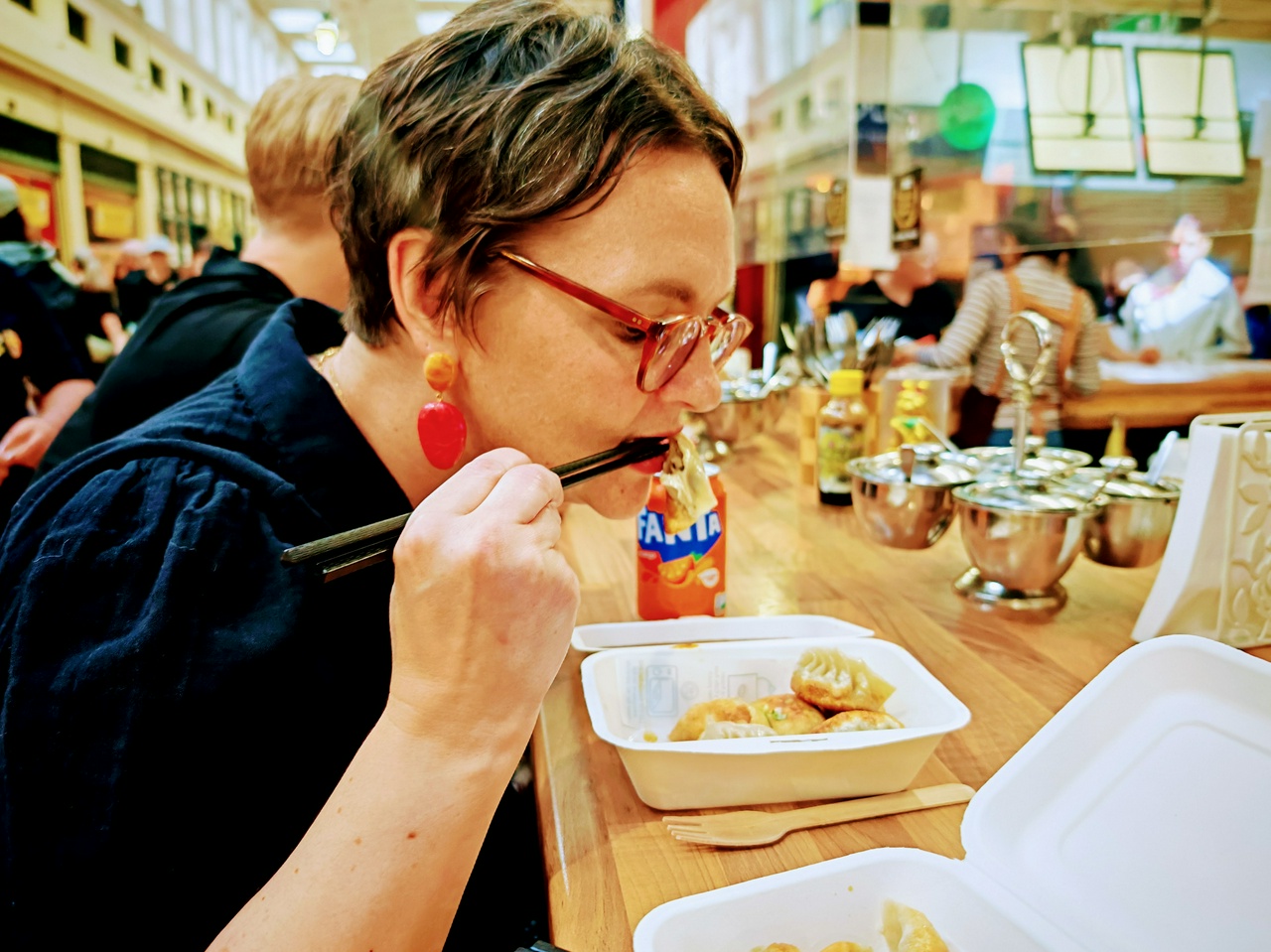Rituals of return
Our Saturday was the kind of day you might easily overlook; some dumplings in the Grainger Market, a couple of pints in pubs, all sountracked by the endless lashing of rain. But for Emma and me, it marked something far bigger. Fourteen weeks after her surgery, fourteen weeks that have reshaped how we go about our days, Emma suggested, completely out of the blue, that we go into town. It wasn’t for a hospital appointment, a scans or a dressing changes. It was just: let’s go out, because we can.
We had gyoza at Dumpling and Bun, on one of the busy alleyways of the covered market. Eight, hand pleated parcels, the tang of vinegar, the umami of soy. Simple. No flourishes. The kind of food you try your damnedest to eat slowly, because it will be hoovered up too quickly otherwise. It felt amazing to sit together and enjoy something so simple.

We’d first eaten gyoza in an izakaya in Hiroshima, sitting shoulder-to-shoulder with strangers, late at night years ago. Crowded on a countertop, surrounded by jubilant Pride March participants, it felt like we were starting to sketch a blueprint for our future. Maybe it won’t be long before we're able to go back to Japan, it really does feel like anything might be possible.
Now, it absolutely pissed it down all day, but it didn't dampen our spirits one iota. Not after everything. Sitting with pint of Jarl in the Bacchus it came to me, we’d crossed the Rubicon. Wew.
Of course, there will be check-ups, scans, anxiety. But from this point, we move forward. Emma will be able to do more. Our world is opening up.
As I try to make sense of changed priorities and endless swirling thoughts, I’ve been reading Neil Postman’s book, Amusing Ourselves to Death, mainly as an antidote to my own digital malaise.
Despite using social media as a platform to chart Emma's illness, doom scrolling always followed each and every update I posted. Clicking the ads that were served to my feed with pinpoint precision.
This pretty remarkable work from 1985, makes it hard to ignore what we’ve lost by using these engagement fruit machines and, in turn, what we're doing to ourselves. Incredibly, this is a book written forty years before the algorhythmic ascendency. Postman writes about how our culture has shifted from a serious and considered mode of discourse to one shaped entirely by ephemerality. In the eighties it was the march of twenty four television that the author honed in on, but his words apply all too well in today’s digital hellssape.
Postman didn't fear that we would be destroyed by what we hate, like Orwell feared in 1984, but, instead, by what we 'love'. That we would drown ourselves in distraction. That we’d forget to pay attention to what really mattered most to us.
Perhaps it isn't a social media feed we need, but instead, perhaps, a social media field. Somewhere not to consume, but to plant, to grow.
That’s why this trip out mattered so much. The satiety of a delicious meal, the warm rain washing away the stains of last year, the feeling of Emma’s hand in mine. The old me would be one to the next thing by now, but I just can’t shift it.
I'm continuing to learn from her recovery; most importantly, to remove the unrequired. To pare back. To have simpler goals. To stop trying to fill single fucking moment with something, with anything. Instead, to let time stretch out. Recovery teaches you that intentionality is good, it's healing. You realise how rare and fragile it is to get to share time with someone you love and not be lost in our own skull sized kingdoms.
We’ve spent so long living from one hospital appointment to the next, that we had lost track of us. We’ve been ruled by the clock; for nursing visits, for timed medication, for pelvic floor exercises, all while being distracted by the screen. But Saturday reminded me that time can still dilate, it can stretch and soften, if we let it.
Four hours can feel like much more.